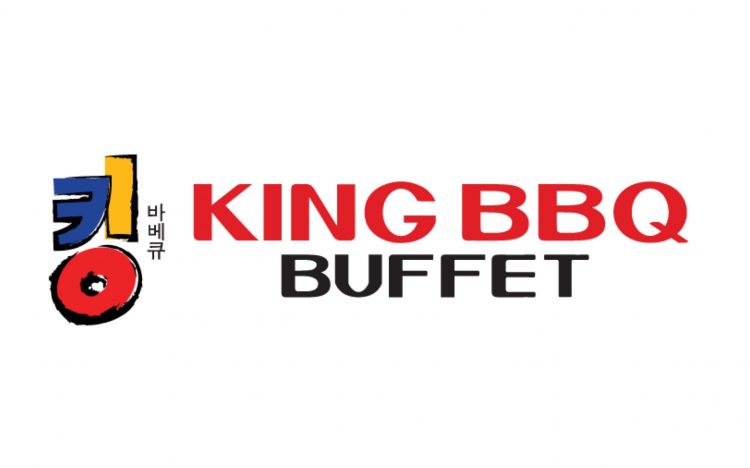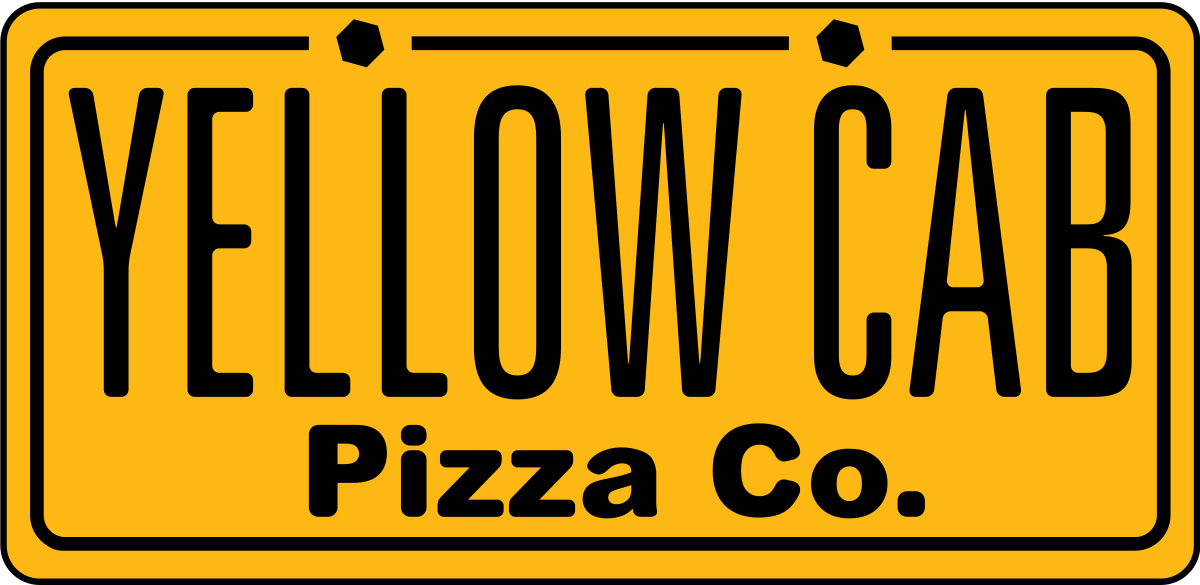Franchising

What We Do
KASS: Expert Guidance in Franchising – Secure and Grow Your Franchise Business
KASS provides comprehensive franchising services that go beyond traditional IP protection. From franchise agreement drafting to market entry strategies, our specialized team supports every stage of your franchise journey. Whether you’re launching a new franchise or expanding an existing network, we offer the expertise needed to succeed in Southeast Asia and beyond.
Franchising in Malaysia
Franchising is a powerful growth opportunity but comes with significant challenges. The Malaysian Franchise Association (MFA) notes that the food and beverage sector leads in franchises, followed by services, education, and more. Successful franchisors and franchisees must navigate complex legal and technical requirements to ensure their operations are lawful in Malaysia. Despite the potential, it takes the right skills—confidence, planning, and interpersonal abilities—to thrive, especially in an industry that demands realism and hard work.
The franchise industry in Malaysia is regulated by the Franchise Act 1998 (“the Act”). The provisions of the Act apply to the sale of any franchise in Malaysia (either local or foreign), whereby the franchised business operates in Malaysia. All franchises operating in Malaysia have to be registered with the Franchise Registry.
To register a franchise with the Franchise Registry, the following documents or information must be submitted to the Registry by the franchisor:
- A Franchise Agreement, compliant with the Franchise Act
- Operation Manual
- Training Manual
- Certificate of Incorporation
- Forms 24 and 49 (Company’s return as to the Board of Directors and the Shareholders)
- Form of Annual Return of a company having a share capital
- Past three (3) years of audited balance sheet and profit and loss account
- Five (5) year franchise financial projection
- Certified true copy of Registered Trademark or Trademark Application filed with the Intellectual Property Corporation of Malaysia (MyIPO)
- Company’s organizational chart, together with the names and positions of key personnel
- Company’s business brochures
- Photographs of Prototype Outlet(s)
- Bankruptcy search results for the Directors
- Other details such as unique selling point, marketing strategy, supporting technology, etc.
If the documentation is insufficient, the Registrar has the discretion to request for more information or documents.
We also need to prepare a Disclosure Document for the franchisee.
A Disclosure Document comprises of documents that have to be made available by the franchisor to the franchisee at least 10 days before the franchisee signs the franchise agreement. The Disclosure Document provided to the franchisee must be identical to the documents submitted to the Registrar.
Much of the information specified in the Franchise Agreement overlaps with the information in the Disclosure Document to a certain extent. It is therefore advisable to have the Disclosure Document and the Franchise Agreement prepared at the same time to ensure that the information in both documents is kept identical.
A word of warning is required at this stage! Franchisors need to check and ensure that the details provided in the Disclosure Document are accurate as they can be found to be committing an offence if there are any misleading, untrue or fraudulent statements in the Disclosure Document.
The entire application and franchise registration process can be completed in as quickly as 2 months or may take up to slightly over than 6 months in certain cases. The Registrar of Franchise has the power to approve or refuse a franchise registration. Be that as it may, in the event the franchise is refused, the Registrar must furnish a reason for the refusal.
At KASS, we provide extensive support and professional consultation to Franchisors and Franchisees by:
- Drafting Franchise Agreements which are compliant with the Act as the Act stipulates that a franchise agreement must contain basic clauses, without which the agreement will be considered null and void;
- Amending existing Franchise Agreements to ensure they are compliant with the Act;
- Preparing the Operation Manual and Training Manual according to the Standard Operating Procedures of the Franchisor;
- Preparing the Disclosure Document needed for the Franchise Registration;
- Preparing the forms and other required documents for the registration of the franchise with the Franchise Registry; and
- Providing advice to Franchisors and Franchisees.
On the whole, the specific requirements of the Franchise Act must be taken into account when the franchisor is preparing the documentation needed to register its franchise in Malaysia, be it the Disclosure Document, the Franchise Agreement, or anything else. You want to make sure you know exactly what you are getting yourself into (e.g., knowing the difference between a Franchise Agreement and a License Agreement) so you do not get blindsided. As technical and dull as the preparation of such documents may be compared to the actual job of opening the outlet, training the staff and running the franchise, you do not want to be caught out by simple technical issues and problems that could have been avoided!
Examples of popular Malaysian franchises:









Franchising in Singapore
There are currently no laws governing franchising in Singapore. However, the Franchising and Licensing Association of Singapore (FLA), being the non-governmental organisation that serves as the country’s leading franchise body, has a set of Code of Ethics that they recommend for parties to adhere to.
The Code is only binding on members of FLA. However general laws surrounding commercial activity in Singapore will also apply to those involved in franchising. These laws include the Competition Act, the Unfair Contract Terms Act, and the Multi-Level Marketing and Pyramid Selling (Prohibition) Act. Certain industries such as real estate and insurance are also subject to separate regulations.
Do email us at kass@kass.asia if you wish to have a copy of the Code of Ethics and our Franchise Team can send the copy to you.
There are no regulations surrounding franchising in Singapore, and neither are there are any registration requirement for franchises in Singapore.
We do, however, recommend that franchisees register their relevant trademarks at the IP Office in Singapore before venturing into any franchise arrangements with third parties.
There are no restrictions on any foreign company or local company to franchise their business in Singapore. As there are no regulations, there are no specific criteria that Franchisors need to meet as well.
Whilst there are no formal contractual requirements for franchise agreements, it is highly recommended that all contracts be in writing and, if not already in English, have an English translation provided, as this is the recognised working language of Singapore. It is also worth noting that, except in special circumstances, there is no implied duty of good faith imposed on either a franchisor or franchisee.
Withholding taxes apply to payments to foreign franchisors, such as royalties and management fees.
It is advisable for all agreements to be reviewed by local lawyers to ensure that the terms therein are localised for the Singaporean business landscape.
Examples of popular Singaporean franchises:










Franchising in Indonesia
In September 2019, the Indonesian Minister of Trade introduced new regulations to make franchising in Indonesia easier. Franchising is now governed by MOT Regulation 71/2019, which revoked all prior franchise regulations.
Franchises must hold a Surat Tanda Pendaftaran Waralaba (Franchise Registration Certificate), which can be applied for through the country’s Online Single Submission (OSS) system. In order to obtain an STPW, businesses must supply a Franchise Agreement and a Franchise Offering Prospectus during the application process. Once a certificate is issued, it will remain valid until either the Franchise Agreement expires, or the business activities cease. The certificate will also become invalid if the Intellectual Property rights expire or registration for such is rejected.
- Fines and sanctions may be imposed on anyone operating a franchise business that does not hold an STPW. Franchisees have the right to accuse the franchisor of fraud and take action under criminal law, if the franchise agreement and the prospectus are not registered under the STPW.
Under the old system, assuming all supporting documents are correctly executed, the approximate issue time for a certificate to be released by the Ministry of Trade is within 14 working days.
As of 1 January 2017, with the country’s new OSS system, the estimated time for the Ministry to process STPW applications is only 2 days.
In Indonesia, a franchise must fulfil the following requirements:
- Has the characteristics of a business;
- Has registered Intellectual Property rights;
- Is profitable, with at least 5 years of experience in the business;
- Is easy to learn or apply;
- Has continuous support from the franchisor; and
- Has a written standard operating procedure outlining the quality of the goods or services being sold.
The above-mentioned requirements are according to Article 2 verse (2) and (3) of MOT Regulation 71/2019.
- It is important to note that all Franchise Agreements are governed by Indonesian law and must be written in Indonesian (Bahasa Indonesia). Foreign Prospectus of Franchise Offers must be translated into Bahasa Indonesia by a Sworn Translator, and must be notarized by a public notary together with legalized statement issued by local Indonesian consulate general.
Franchise businesses are also obligated to prioritise local goods and services when executing their business. Fortunately, the regulations no longer stipulate an exact percentage for this matter (previously 80% of local content was required).
Examples of popular Indonesian franchises:






Franchising in Thailand
There are currently no specific law or code of ethics governing franchising in Thailand. Therefore, the actions of franchises are regulated by other sources of law, such as the Civil and Commercial Code, the Trade Secrets Act, the Foreign Business Act and the Trade Competition Act. A draft Franchise Business Act exists – however it has been pending for many years without much indication of further consideration.
There are no regulations surrounding franchising in Thailand, and neither are there are any registration requirement for franchises in Thailand.
We do, however, recommend that franchisees register their relevant trademarks at the IP Office in Thailand before venturing into any franchise arrangements with third parties.
There are no restrictions on any foreign company or local company to franchise their business in Thailand. As there are no regulations, there are no specific criteria that Franchisors need to meet as well.
As there is no overriding franchise law in Thailand, it is important to draft your franchise agreement carefully. It is worth having an agreement vetted by a local lawyer to ensure protection for both parties.
In the Civil and Commercial Code (Section 14), it is stated that “Whenever a document is executed in two versions, one in the Thai language, the other in another language, and there are discrepancies between the two versions, and it cannot be ascertained which version was intended to govern, the document executed in the Thai language shall govern.”
We therefore advise that all documents are translated into the Thai language by a professional translator.
Examples of popular Thai franchises:




Franchising in Vietnam
Foreign franchisors must register their franchise with the Ministry of Industry and Trade. Registration requires the following documents:
- Franchise Registration Application
- Franchise Agreement
- Power of Attorney
- Franchise Description Document
- Business Registration Certificate (or equivalent) of the franchisor
- Document proving the approval of the primary franchisor (where the applicant is a secondary franchisor)
- Any certificates of Intellectual Property
Any foreign documents must be translated into Vietnamese, consular legalised and notarised. The franchisor must also provide the franchisee with the Franchise Agreement and the Franchise Description Document at least 15 days prior to the signing date of the agreement.
There is no additional requirement to register any form of corporate entity. However, be aware that certain industries, such as tourism, will require a joint venture with a local company when starting a franchise. Food and retail franchises can be wholly foreign-owned.
Domestic franchisors do not need to register their franchising activities.
It is also imperative that any relevant Intellectual Property be registered. This is because only trademarks and know-how that is registered in Vietnam will be allowed to be licensed there (with the exception of very well-known trademarks).
Assuming all required documentation is provided and correct, the Ministry of Industry and Trade will record and inform the applicant of the successful registration within seven (7) working days. The applicant should receive their registration certificate within four (4) weeks.
Any person wishing to franchise in Vietnam must have been operating their business for a minimum of one year prior to commencing franchising activities. This also applies to sub-franchising.
Franchise agreements can be governed by any jurisdiction the franchisor and franchisee agree on. There are also no rules stipulating that any terms or provisions are mandatory in such an agreement. However, all agreements must be written in the Vietnamese language.
We therefore advise that all documents are translated into the Vietnamese language by a professional translator.
Examples of popular Vietnamese franchises:




Franchising in Myanmar
Myanmar does not have any specific legislation or code of ethics to regulate franchising. Therefore, the actions of a franchise are subject to provisions of other sources of law, including the Competition Law 2015, Companies Law 2017, Sale of Goods Act 1930, the Contract Act 1872, and the Consumer Protection Law 2019.
Myanmar does not require registration of a franchise, and there is no requirement for a foreign franchisor to register a separate entity to engage in an agreement with a local franchisee.
As there is no legislation to regulate the franchising business concept in Myanmar, there are no set criteria for companies looking to franchise in Myanmar.
It is important to draft your franchise agreement carefully. It is worth having an agreement vetted by a local lawyer to ensure protection for both parties.
Although parties can enter into agreements in the language of their choice, it is common for dual-language agreements to be executed, so that if any party is a Burmese, he/she can understand the terms of the agreement clearly.
Translation is required if parties agree to have the jurisdiction of the Myanmar Courts.
Examples of popular Burmese franchises:


Franchising in the Philippines
In the Philippines, franchises are regulated by the Department of Trade and Industry (DTI) and require adherence to local laws and regulations. While there is no specific law governing franchises, franchisors are encouraged to comply with the provisions of the Intellectual Property Code of the Philippines (RA 8293) and the Corporation Code.
Here’s a step-by-step guide to the registration process:
Business Registration:
Franchisors must register their business with the DTI for sole proprietorships or the Securities and Exchange Commission (SEC) for corporations or partnerships.Trademark Registration:
To protect the franchise’s brand, logos, and intellectual property, franchisors should register their trademarks with the Intellectual Property Office of the Philippines (IPOPHL). This step is critical for ensuring exclusivity and legal protection.Preparation of the Franchise Agreement:
A comprehensive franchise agreement must be drafted, clearly outlining the terms and conditions between the franchisor and franchisee. This document must comply with the Fair Trade Act to avoid unfair business practices.Franchise Disclosure Document (FDD):
Although not mandatory, it is highly recommended to prepare an FDD that provides potential franchisees with relevant business information, risks, and obligations. This transparency builds trust and credibility.BIR Registration:
The business must register with the Bureau of Internal Revenue (BIR) to secure the necessary tax identification numbers and comply with tax requirements.Other Permits and Licenses:
Depending on the nature of the business, additional permits may be required, such as health permits, zoning clearances, and environmental compliance certificates.
The timeline to register a franchise in the Philippines can vary based on the completeness of your documentation and the processing times of various agencies.
- Business Registration: Typically takes 2-4 weeks, depending on the type of business entity and the efficiency of the DTI or SEC.
- Trademark Registration: Can take 6 months to a year, as IPOPHL rigorously examines trademark applications to avoid conflicts.
- Tax and Other Licenses: BIR registration and local permits may take 1-2 weeks, provided all documents are in order.
- Franchise Agreement and Documentation: This largely depends on how quickly the franchisor can draft and finalize these documents, which could range from a few days to weeks if legal assistance is required.
For a business to successfully franchise in the Philippines, it needs to demonstrate operational stability, brand strength, and compliance with legal requirements. As a franchising service provider, we help businesses meet these essential criteria.
For Franchisors:
- Conduct Thorough Research: Understand the market, competition, and target audience to develop a franchise offer that appeals to potential investors.
- Invest in Training Programs: Ensure that franchisees are well-trained to maintain brand standards and operate efficiently.
- Maintain Open Communication: Build a strong relationship with your franchisees by providing regular updates and being available to address concerns.
- Be Transparent: A clear and upfront disclosure about financial requirements, potential risks, and expectations fosters trust.
For Franchisees:
- Choose the Right Franchise: Align with a brand that matches your interests, skills, and financial capacity.
- Study the Franchise Agreement: Seek legal advice to ensure you fully understand your rights, obligations, and limitations.
- Prepare Financially: Secure enough capital, not just for the franchise fee, but also for working capital, marketing, and unforeseen expenses.
- Follow the System: Franchises succeed when franchisees follow the proven systems set by the franchisor. Avoid deviating from established protocols.
Examples of popular Vietnamese franchises:

_Secondary%20Full%20Reverse%20BG.jpg)



